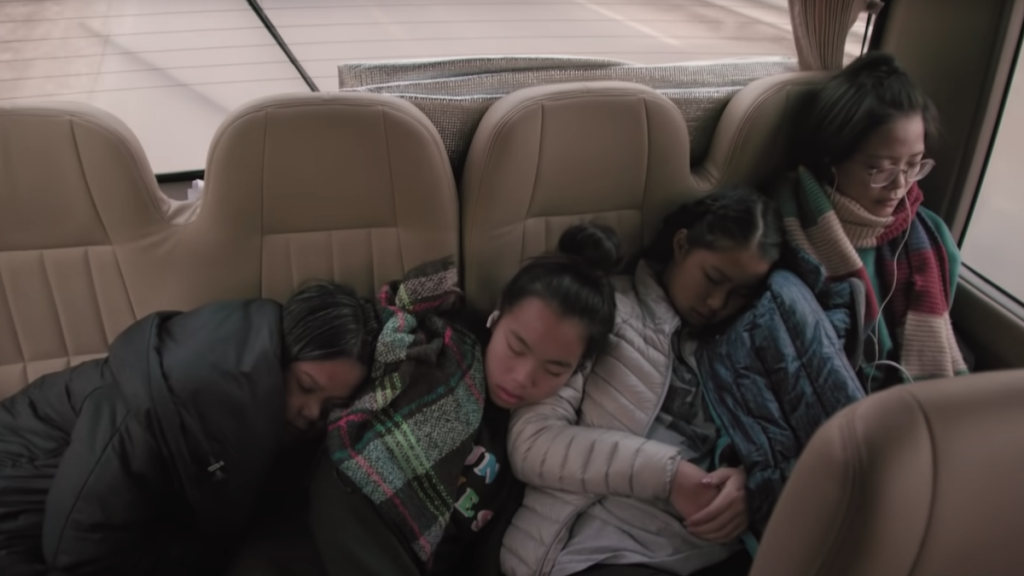Opinion Piece written by Jasper Cohen-Hunter
Netflix’s ‘Found’ directed by Amanda Lipitz is a heartfelt documentary that explores the internal feelings of 3 Chinese-American cousins who discovered each other through DNA testing website 23andMe.
The estimated number of Chinese babies adopted overseas is approximately 150,000. The “one child policy” forced parents to give their babies up for adoption. Lipitz questions the feelings of parents forced to give up their children, and the internal struggles of the girls growing up in religious backgrounds where they aren’t represented.
DNA testing companies such as 23AndMe are a common tool for people to have fun and learn their ancestry. Although the accuracy results are debated, I often hear about DNA testing for recreational use, when these companies have power to reconnect displaced peoples to their identity.
Chloe, one of the three girls, is raised in a Jewish school, but does not feel connected to her families roots.
Director Amanda Lipitz quotes,
Chloe and I are very close, and I have watched her be hesitant to explore her past. But when Chloe found her cousin — the first blood relative that she had ever known — I watched it awaken this dormant curiosity in her, and I watched it in all the girls.
When watching this documentary on a Thursday morning, I couldn’t help but resonate with the girls and a struggle for a lost identity. In Australian society, the quote ‘i’ve got a little aboriginal in me’, is all to common, and this comes from a denial of Aboriginality to conform into the western colonial world. After years of passing I had only a faint memory of hearing my best friend had Aboriginal ancestry when I was a child, I decided to ask him if he knew anything about his heritage with the joke that perhaps my best friend of 11 years was a distant cousin to me.
I was lucky enough as a child to have the world showed to me by my elders, and even though I feel a disconnect to my culture on some days, I’m a proud Wurundjeri man.
For my friend, who’s grandmother was a member of the stolen generation, he was raised as Scottish, and the great silence of what occured to her in a lifetime will never be recovered. My dear friend will never identify as a Dja Dja Wurrung man, but I know in my heart that our ancestral lines shared stories and traded Silcrete along the Ngannelong (Hanging Rock).
When watching this documentary, the shocking truth telling and emotional ride of the three girls discovering their ancestry through grief hurt a lot. Not because I relate to the experience of Chinese adoption to America, but because the tides of history displacing children resonates across the globe.
This year aired on ABC’s ‘Who do you think you are’, invited Uncle Jack Charles to explore his ancestry as an Aboriginal man taken from his birth parents and raised in adoption. The legacy of Jack’s early life has been addiction, theft and twenty-two stints in jail. Jack eventually became a beloved stage and film actor in Australia. A first for the Australian Broadcasting Coorperation takes the pioneer of Blak theatre across the country to Tasmania to the places of his family lineage, discovering that his ancestry extends to Tasmanian women Woretmoeteyenner, the first Aboriginal person to explore the world as a sealer, finding her way from the isolated Island state to Victoria to raise the maternal line of the Briggs family in Coranderrk Aboriginal mission.
I implore you reader, identity is the strongest connection to land that stretches beyond religion. If you are displaced from your identity and feel alienated. You deserve to adventure into the scary unknown for the story of your ancestors bringing you here. People have displaced as communities across the globe for centuries due to systems they could never control. You don’t need your parents permission to discover YOUR identity.
You’re important, and can break the chain of silence.
Truth-telling is terrifying, but you deserve to connect to the family that was taken from you by systems beyond your control.
Good luck.
Header image: ‘Found’ Amanda Lipitz (2021)


